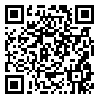BibTeX | RIS | EndNote | Medlars | ProCite | Reference Manager | RefWorks
Send citation to:
URL: http://sjsph.tums.ac.ir/article-1-5266-en.html

 , Hassan Eftekhar ardebili *
, Hassan Eftekhar ardebili * 
 2, Mahmood Mahmoodi3
2, Mahmood Mahmoodi3 
 , Seyed Abolghasem Jazayeri4
, Seyed Abolghasem Jazayeri4 
 , Maryam Chamari5
, Maryam Chamari5 

2- Ph.D. Professor, Department of Health Education and Health Promotion, School of Public Health, Tehran University of Medical Sciences, Tehran, Iran ,
3- Ph.D. Professor, Department of Epidemiology and Biostatistics, School of Public Health, Tehran University of Medical Sciences, Tehran, Iran
4- Ph.D. Professor, Department of Nutrition and Biochemistry, School of Public Nutrition, Tehran University of Medical Sciences, Tehran, Iran
5- MSc. Department of Nutritional Sciences and Dietetics, School of Public Nutrition, Tehran University of Medical Sciences, Tehran, Iran
Background and Aim: Nutritional knowledge acquired by young girls as would-be mothers will play an important role in children’s and family health protection and promotion in the future. The purpose of this study was to determine the effects of an educational program based on the BASNEF model on the nutritional behavior among guidance school first-grade female-students.
Materials and Method: This was an interventional study carried out in the form of a clinical trial including 160 female-pupils divided into two groups ─ a case and a control group ─ randomly selected by two-stage sampling, namely, classification and cluster sampling. The data gathering tool was a questionnaire. Education about healthy nutrition was imparted to the case group in 4 60-minute sessions in the form of lectures, group discussions, and question-answer in addition, pamphlets were distributed among the subjects. Data were collected and analyzed using the SPSS-18 software, the statistical tests being Chi-square, fisher , independent and paired t-tests.
Results: The data showed that the mean scores of knowledge and BASNEF model components as regards nutritional behavior increased after the intervention in the case, they being higher significantly in the case group as compared to the controls. The most important subjective norms after the intervention were the pupils’ parents .
Conclusions : The findings indicate that a 3-month educational intervention based on the BASNEF model can bring about desirable changes in some of the undesirable nutritional behaviors in guidance school pupils, and that designing and implementing interventions of this kind, with the support of health and school authorities, is quite feasible.
Received: 2015/09/12 | Accepted: 2015/09/12 | Published: 2015/09/12
| Rights and permissions | |
 |
This work is licensed under a Creative Commons Attribution-NonCommercial 4.0 International License. |



